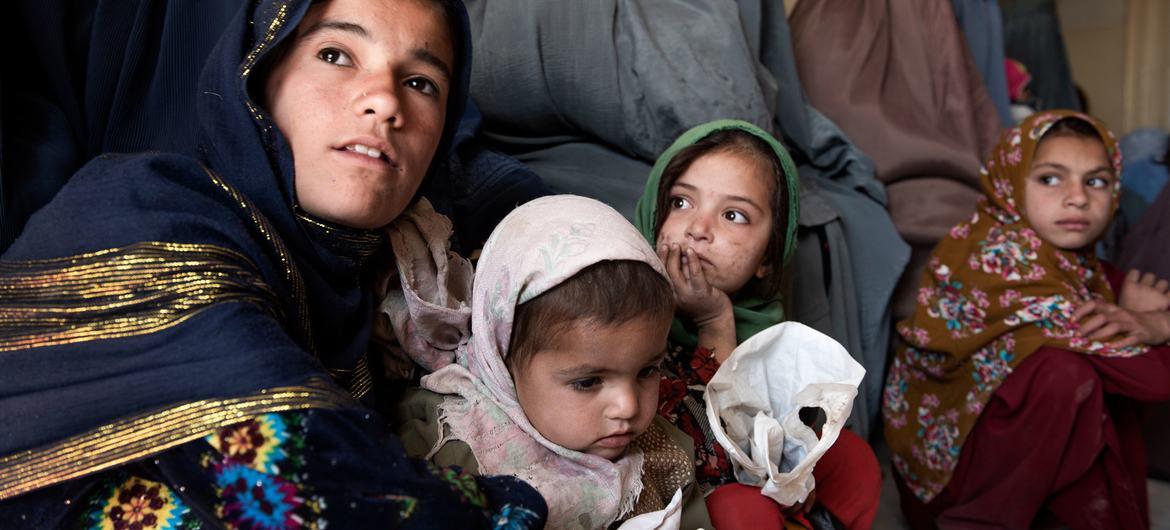The international community must dramatically increase efforts to urge the de facto authorities in Afghanistan to adhere to basic human rights principles, a group of UN independent rights experts said on Friday, 12th August 2022.
“The future is immensely bleak for Afghans if more is not done by the international community to ensure the Taliban changes its modus operandi and complies with its human rights obligations,” they said in a statement.
The experts recalled that following the Taliban takeover last August, they had appealed for the international community to take “stringent actions” to protect Afghans from violations such as arbitrary detention, summary executions, internal displacement, and unlawful restrictions on their human rights.
Failure to deliver
“One year later, we reiterate this call,” they said. “Despite making numerous commitments to uphold human rights, the Taliban have not only failed to deliver on their promises, they have also reversed much of the progress made in the past two decades”.
Moreover, the humanitarian and economic crisis in Afghanistan, which has already caused immeasurable harm to millions, shows no signs of slowing down. In fact, it is predicted to worsen, they added, partly due to the interruption of international assistance and the freezing of Afghan assets abroad.
Attack on women and girls
The experts said the Taliban have committed a “plethora” of human rights violations, with the virtual erasure of women and girls from society, as well as their systematic oppression, being particularly egregious.
“Nowhere else in the world has there been as wide-spread, systematic and all-encompassing an attack on the rights of women and girls – every aspect of their lives is being restricted under the guise of morality and through the instrumentalization of religion. Discrimination and violence cannot be justified on any ground”.
Regrettably, there is little indication that the human rights situation is turning a corner, they said.
No confidence
“Indeed, the daily reports of violence – including extra-judicial killings, disappearances, arbitrary detention, torture, heightened risks of exploitation faced by women and girls including for the purposes of child and forced marriage, and a breakdown in the rule of law – gives us no confidence that the Taliban has any intention of making good on its pledge to respect human rights.”
Citizens now have no means for redress as the Afghanistan Independent Human Rights Commission has been abolished, along with other independent oversight mechanism and institutions.
The administration of justice has also been compromised. The applicable law is unclear, and judges and other officials have been replaced, which has especially affected women.
Peace prospects dim
The experts pointed to other violations, such as the curtailing of press freedom, and the rise in attacks on religious and ethnic minorities, some of which were claimed by the ISIL-KP terrorist group. They also and highlighted how journalists, activists, academics and artists have either left the country, quit their work, or gone into hiding.
Furthermore, in the absence of an inclusive and representative government, prospects for long-lasting peace, reconciliation and stability will remain minimal.
“The de facto authorities seek international recognition and legitimacy. Regrettably, they continue to abuse almost all human rights standards while refusing to offer even a modicum of respect for ordinary Afghans, in particular women and girls,” said the experts.
Most recently, the Taliban appeared to have been harbouring the leader of Al Qaeda. Ayman al-Zawahiri was killed last week in a US drone strike, which the experts said also raises concerns of a violation of international law.
“Until it demonstrates significant steps towards respecting human rights, including by immediately reopening girls’ secondary schools and restoring their access to a quality education, they should not be on a path to recognition.”
Action by the authorities
In addition to honouring their international obligations, the experts have called for the Taliban to fully implement human rights standards, including respecting the rights of women and girls to education, employment and participation in public life.
The de facto authorities should immediately open all secondary schools for girls, and lift restrictions on women’s mobility, attire, employment and participation. The rights of minority communities must also be upheld.
The Taliban are also urged to “respect the general amnesty and immediately stop all reprisals against members of the former government’s security forces, other officials and civil society, especially human rights defenders, including women”.
Furthermore, human rights monitors and humanitarians should be allowed free, unhindered access throughout the country, including to sensitive locations such as detention facilities.
They also called for the Afghanistan Independent Human Rights Commission, bar associations, and other relevant unions, to immediately be reinstated and allowed to operate freely and independently.
International appeal
The experts also outlined steps the international community should take.
They include insuring civilians have equitable access to humanitarian aid, and supporting ongoing initiatives by Afghan women towards a strategy to promote the rights of women and girls, with clear benchmarks and expectations.
Countries are also urged to maintain and/or adopt sustained and robust humanitarian exemptions within sanctions regimes to ensure compliance with international human rights and humanitarian law.
“Such measures should be fit for purpose, ensure that sanctions measures do not interfere with protected humanitarian action under international law, and function to remediate the current humanitarian crises and to prevent sanctions from continuing to exacerbate the humanitarian human rights crises being faced by the Afghan people,” they said.
Role of UN experts
The 20 experts who issued the statement were all appointed by the UN Human Rights Council.
They include Richard Bennett, UN Special Rapporteur on the situation of human rights in Afghanistan, and other Special Rapporteurs who monitor and report on issues such as the situation of human rights defenders worldwide.
These independent experts receive their mandates from the Council and operate in their individual capacity. They are neither UN staff, nor are they paid for their work.
Source:news.un.org



